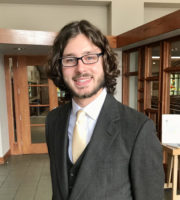
Professor criticizes ‘simplistic stories’
A new academic paper questions a different study finding a prevalence of female hunters in “forager societies.”
“Woman the Hunter? Female foragers sometimes hunt, yet gendered divisions of labor are real,” raises concerns about “The Myth of Man the Hunter,” which “glean[ed] data from across the ethnographic literature to investigate the prevalence of women hunting in foraging societies in more recent times.”
Posted on preprint server bioRxiv, the new paper is currently under peer review. A researcher on the study spoke to The College Fix, as did a professor who conducted the original study.
“I am sympathetic with the general goal of the…study in calling attention to women’s important role in human evolution,” Professor Vivek Venkataraman told The Fix in an email.
“But it is time to move beyond these simplistic stories,” the University of Calgary anthropologist and corresponding author said. “More nuance will help to enrich our understanding of human evolution and gender roles in the past.”
The paper, written by 15 different professors, does not accuse the 2023 paper, written by four undergraduate students and a professor at Seattle Pacific University, of deception. Rather, it argues there are flaws in the design and methodology of the study.
“As a diverse group of hunter-gatherer experts, we find that claims that foraging societies lack or have weak gendered divisions of labor are contradicted by empirical evidence,” the abstract of the new paper reads. “We conducted an in-depth examination of Anderson…data and methods, finding evidence of sample selection bias and numerous coding errors undermining the paper’s conclusions.”
Students Abigail Anderson, Sophia Chilczuk, Kaylie Nelson, and Roxanne Ruther coded societies as either women hunting or not hunting. But this binary is misleading because it does not take into account the frequency of hunting, according to Professor Venkataraman.
“Hunting should not be studied as a binary activity because it obscures information and variation.” Venkataraman wrote in an email.
“Imagine a society in which women hunt 1 percent of the time, and imagine one in which they hunt 50 percent of the time,” he said. “That’s a big difference, but coding it as a binary collapses that difference. One of the issues we identified with the Anderson paper is that they coded women’s hunting as a binary.”
The Anderson paper counted societies having only one instance or mention of a woman hunting as societies where women hunt regularly, Venkataraman said.
The undergrad researchers also “biased” their selections of societies, according to Venkataraman.
“We found that their sample was biased, which served to inflate the frequency of women’s hunting, binary coding was another problem,” he told The Fix. “We also found that much of their data were, in fact, miscoded.”
MORE: No black athletes have taken up NAACP Florida boycott
Professor Cara Wall-Scheffler, the Seattle Pacific professor on the 2023 paper, objected to the criticism.
“The two papers are more different than Venkataraman et al. are putting forth I think,” Wall-Scheffler told The Fix in an email.
“The studies are doing two different, but equally important things:” she wrote. “[N]amely Anderson et al. notes that very few cultural groups have rigid taboos regarding the act of killing terrestrial vertebrates and Venkataraman et al. notes that human groups do a lot of different kinds of labor, of which hunting is only one.”
“I find it most interesting that Venkataraman et al. jump straight from women-hunt-too, to Anderson et al. claim there is no gendered labor,” Wall-Scheffler said.
The Seattle Pacific study drew from the Database of Places, Languages, Culture and Environment. One criticism is the researchers used “improper exclusion” of some societies and “selective inclusion” of sources outside the database.
Wall-Scheffler told The Fix different formats of the D-PLACE atlas could account for some of the concerns raised in the Venkataraman study. “[Our] paper explicitly states that D-PLACE online incorporated work by Lewis Binford; some sites in the hard copy of the Binford atlas might not have been in the online version of D-PLACE which could be the reason for some of their concerns,” she wrote.
“Our first rationale was just to make sure we had groups from around the world,” she wrote.
“We did not include studies that used gender-neutral language (i.e. ‘the hunters’),” she said. “The source material had to explicitly state which gender was doing which work for it to be included.”
Her study attracted media attention from publications including The New York Times and Smithsonian.
Seattle Pacific University put out a news release saying the paper “debunks the myth of men as hunters and women as gatherers.”
MORE: Media puffs up study on spears to claime female hunters were ‘equal’ to males
Like The College Fix on Facebook / Follow us on Twitter






Please join the conversation about our stories on Facebook, Twitter, Instagram, Reddit, MeWe, Rumble, Gab, Minds and Gettr.